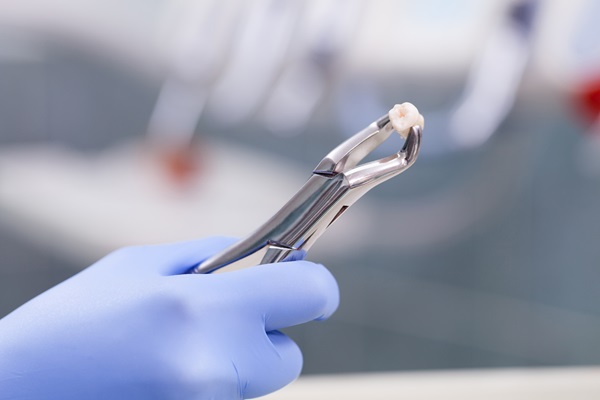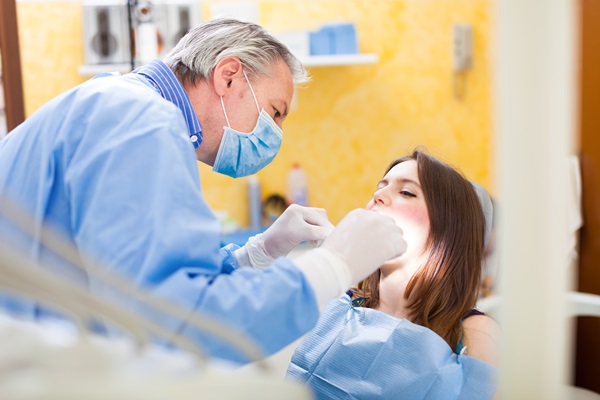An Oral Surgeon Discusses Common Oral Pathology Diseases

Oral pathology is a medical specialty that focuses on disorders of the mouth and surrounding areas. Since the mouth is the main channel through which many things enter the body, it is at significant risk of developing infections, lesions, and other oral issues. This article goes over some of the common diseases covered treated under oral pathology.
Common oral pathology diseases
During an appointment, a dental professional might notice certain changes in the texture, color, and shape of the oral cavity of a patient. This might require conducting biopsies, analyses, and recommending treatments. The following are four frequent oral pathologies that oral surgeons detect and treat in their patients:
Herpes simplex virus type 1
A patient might have herpes simplex virus type 1 (HSV-1) if they experience fever, blisters, or cold sores in their oral cavity. HSV-1 is extremely infectious and widespread, according to the Cleveland Clinic, with over half of the U.S. population infected. It is transferred by saliva when people share utensils, drinks, lip balm, or kisses. It may even be transmitted through skin-to-skin contact, and someone might be contagious even if they are asymptomatic.
When HSV-1 is initially contracted, the person might experience a tingling, burning, or itchy feeling on or around their lips, blisters on the skin and inside the mouth, and sores on the genitalia, although this is more common with HSV-2.
HSV-1 has no specific treatment because the lesions usually go away on their own. The dental professional might recommend antiviral lotions or medicines to help patients feel better.
Candidiasis (thrush)
Oral thrush is a type of fungal infection that causes red lumps and white spots within the mouth. Treatment includes treating the underlying health issue as well as using antifungal medicines. Some patients are at high risk of oral thrush infection, include those with diabetes, compromised immunity, dentures, or any condition that causes dry mouth, and using certain medications that disrupt the natural balance of microorganisms in the body, such as prednisone, inhaled corticosteroids, or antibiotics.
According to the Centers for Disease Control, oral thrush is the most prevalent fungal infection, and other symptoms that may occur in addition to red spots include cottonmouth, taste deterioration, discomfort when eating or swallowing, and skin breakage and redness around the mouth corners.
Black hairy tongue
This condition makes the tongue appear to be covered with black hair (although it isn't). What occurs is that dead skin cells gather on the papillae (small bumps produced by mucous membrane cells that are part of the tongue's surface) and cause them to grow longer than normal. The black coloration comes from the fact that these long papillae are more easily stained by foods eaten. Other symptoms of this disease include taste changes, bad breath, tickling, or gagging due to the long papillae.
While having a black hairy tongue might be worrisome, the good news is that it is completely harmless and can be easily treated by avoiding potential contributory factors (such as smoking) and maintaining proper dental hygiene.
Oral cancer
According to the American Cancer Society, oral cancers are expected to cause 54,010 cases and 10,850 deaths in 2021. HPV is the leading cause, followed by smoking and high alcohol usage.
The bottom line
Do not wait until your next scheduled appointment if you discover an odd sore or lump in your mouth. Make an appointment with an oral surgeon as soon as possible.
Request an appointment here: https://brighton.drjstearns.com or call Platte Valley Oral Surgery at (303) 997-0223 for an appointment in our Brighton office.
Check out what others are saying about our services on Yelp: Oral Pathology in Brighton, CO.
Recent Posts
You might have heard the term “wisdom tooth extraction” often. However, you might not know that every type of extraction does not require surgery. Some kinds only require a simple procedure. Keep reading to find out more about what a wisdom tooth extraction from an oral surgeon involves.In many cases, the wisdom teeth can be…
Corrective jaw surgery (also called orthognathic surgery) is performed by an oral surgeon to correct different forms of skeletal and dental issues, including jaw and teeth misalignment. The aim is to improve oral functions such as breathing, speaking, and eating. Although the surgery may improve the appearance of the patient's teeth significantly, corrective jaw surgery…
If you are experiencing symptoms like jaw pain and stiffness, TMJ disorder might be the problem. This disorder can have a significant impact on your physical and mental health. The condition generally worsens without treatment. A TMJ specialist is a trained and experienced professional who offers treatment for TMJ disorders. Continue reading to find out…
Bone grafting is a minor surgical treatment done under local anesthetic to replace depleted bone tissue. The grafting material may be inserted into a tooth socket just after a tooth is removed or at a location where a tooth has been absent for an extended period. Over the next few months, your body will produce…


